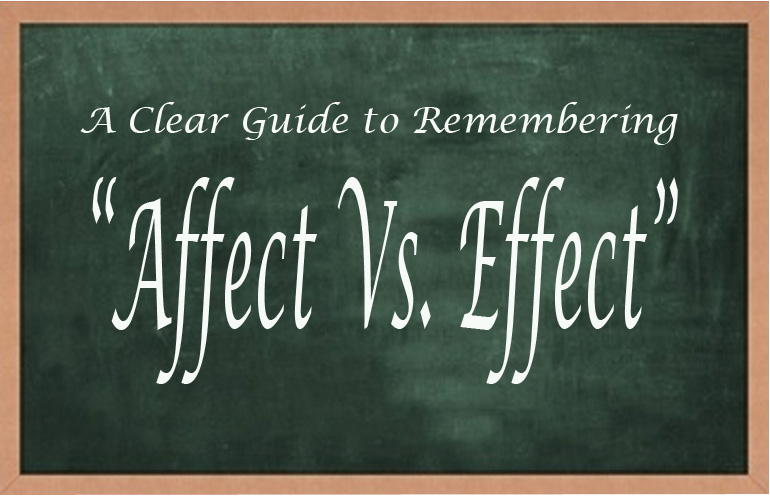A Clear Guide to Remembering “Affect Vs. Effect”

The English language is a beautiful dialect. There are over 600,000 words in the English language, with an abundance number of literary terms. The number of words in the Oxford English Dictionary is steadily growing yearly, as a new word is added to the dictionary every two hours. The English language initially apportioned much of its grammar and cardinal vocabulary with the Dutch and German, while later acquiring words from the French and Latin. Furthermore, English is the second most spoken language following Mandarin, with a staggering 840 million people speaking English as a first or second language. Globally, English is the official language of 67 countries, as well as 27 non-sovereign entities. Statistically, 25% of the world’s population speaks at least some English, and more people worldwide have learned English as their second language than there are domestic English speakers.
As a result of the copious amounts of words, literary terms and parts of speech, there is an abundant amount of misused or mispronounced words in the English language. One set of words that are repeatedly mixed up are affect versus effect. These words sound similar; however, their pronunciation differs slightly. Some may label these words as homophones, as they sound similar in pronunciation, but greatly differ in definition.
Let’s take a look below at how they differ:
Affect: This is generally a verb, which means to impact or change. When using effect, it generally conveys an event occurring to impact another event. When a person or thing has an influence or an impact on another person or thing, affect is the proper word to implement. Some synonyms of the word affect include words like influence, change, alter and modify. A prime example of this word in use is “The rain affected the football game”.
More examples: “Will …
A Clear Guide to Remembering “Affect Vs. Effect” Read More
